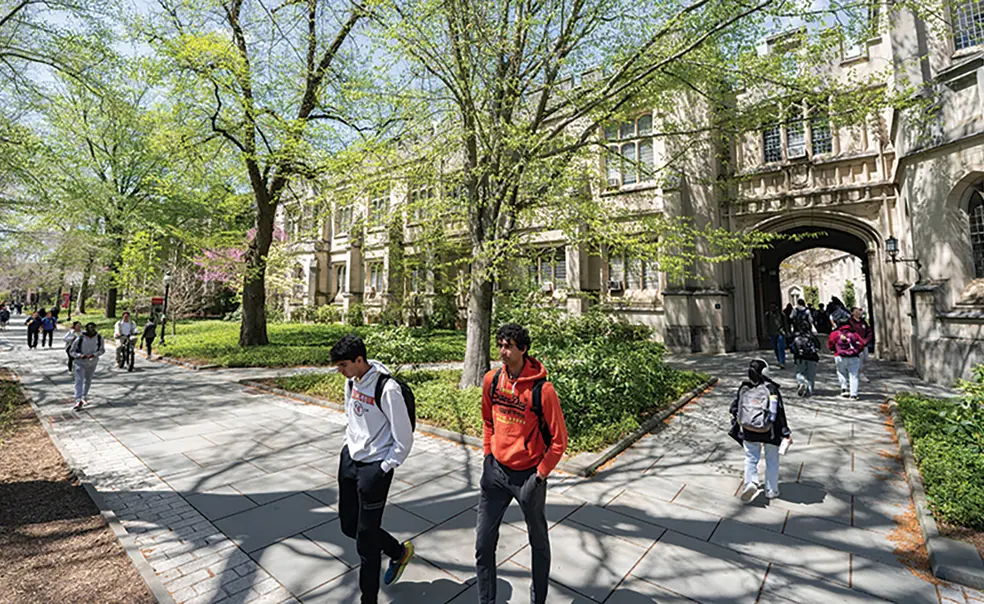Passing Time Between Classes Extended to 15-20 Minutes
The extra time should help students as Princeton’s campus grows
The Princeton faculty approved a new schedule to be implemented in fall 2025 that will see passing time — the time between class periods — extended to at least 15 minutes, and at times 20 minutes, to help alleviate concerns about the physical growth of campus and increased distance between buildings. The vote at the April faculty meeting passed unanimously.
“Over the last several years, faculty and undergraduate students have been telling us … that the current 10-minute passing time between classes no longer works. Each term, approximately 750 to 800 undergraduates have back-to-back course enrollments in locations that exceed the current passing time allotment, and that’s just the baseline,” Dean of the College Jill Dolan said as she introduced the proposal at the faculty meeting, noting it represented about 18 months of work from the Faculty Committee on Classrooms and Schedule.
According to Dolan, the new schedule will decompress the popular 11 a.m. time slot by adjusting start times — the first class of the day will start at 8:30 a.m. — and creating a new 80-minute time slot; in addition, there will be a new three-hour period on Friday mornings.
“The increased passing time is important for facilitating the sorts of spontaneous connections which make the residential campus experience
so meaningful.”— Laura Kalin
Member of the Committee on Classrooms and Schedule
The schedule also preserves an unconflicted period at midday, which many departments use for meetings and events, and the 4:30 to 7:30 p.m. time period, which students use for extracurriculars and athletics.
Prior to the faculty vote, the Undergraduate Student Government Senate unanimously approved a statement in support of the change.
Avi Attar ’25, president of USG, told PAW via email that the schedule changes “will reduce challenges which students have raised to USG like missing the beginning and end of class, not being able to stay afterwards to talk with professors and classmates, and considering classroom locations when selecting classes.”
Laura Kalin, a member of the Committee on Classrooms and Schedule and associate director and professor of linguistics at Princeton, told PAW via email that “the increased passing time is important for facilitating the sorts of spontaneous connections which make the residential campus experience so meaningful.”
Kalin said she has “had at least one student nearly every semester who has had to leave my class a little bit early or arrive a little bit late due to the distant location of another course” which “adds up to a significant amount of missed information and interaction over a semester.” Kalin also noted the current limited passing time posed challenges for “students who need additional time to physically move between spaces on campus, for whatever reason.”
Students’ frustration with the current passing time was exacerbated when the University banned personal electric vehicles such as scooters and e-bikes from the core of campus in January.












No responses yet